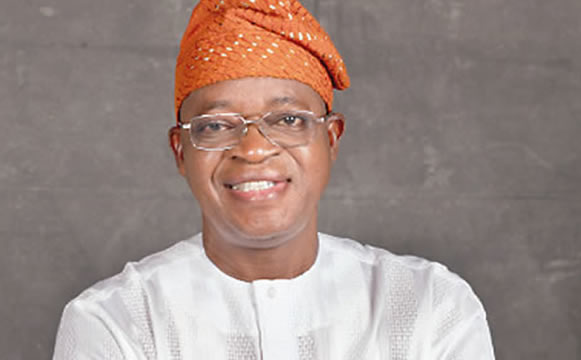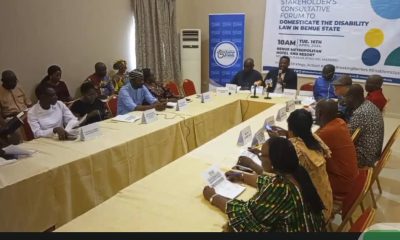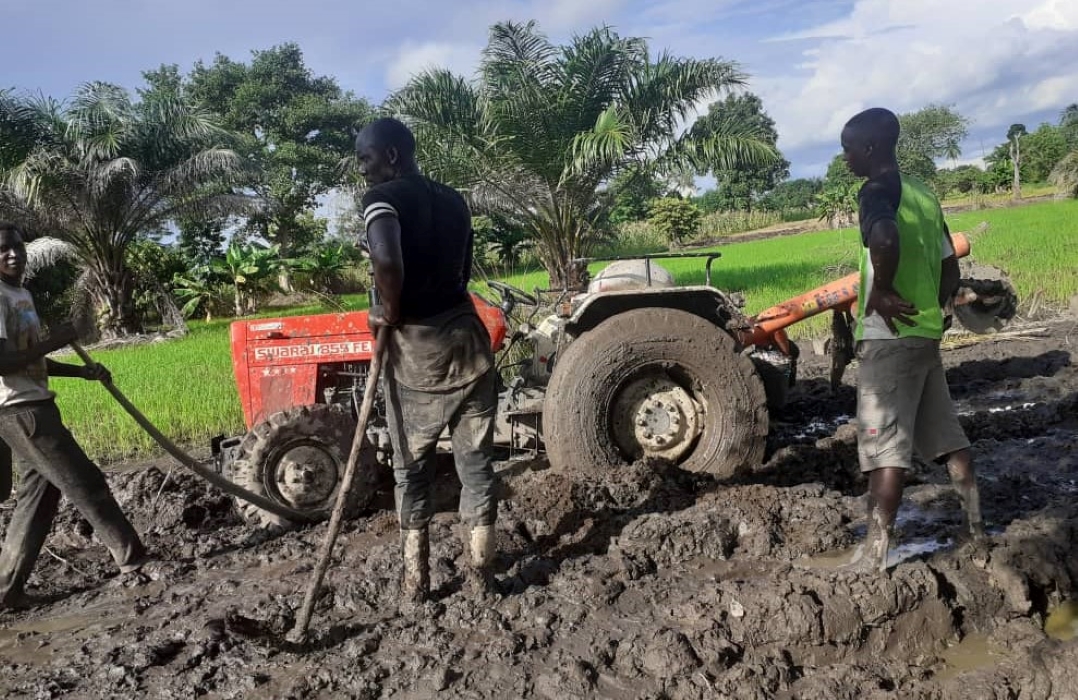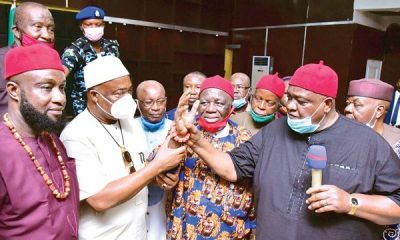NEWS
FCT, 23 States Receive N24bn Conditional Grant Schemes – SDGs
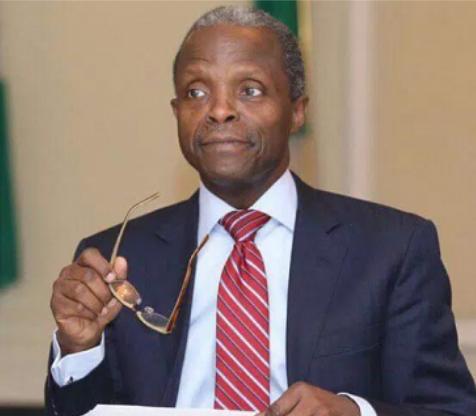
By Mathew Dadiya, Abuja
The Senior Special Assistant (SSA) to the President on Sustainable Development Goals (SDGs), Mrs. Adejoke Orelope-Adefulire, Thursday disclosed that Twenty-three states of the Federation and the Federal Capital Territory (FCT) have received N24,450,000,000.
00 from the Conditional Grant Schemes as incentive to invest more of their resources into areas of national development priorities and the Millennium Development Goals(MDGs)/Sustainable Development Goals (MDGs).The fund, according to the MDGs boss, disbursed from 2015 till date, was introduced in 2007 with a 50 percent marching grant from the federal government and 50 percent from the participating states.
Mrs. Orelope-Adefulire, announced this while during the Ministerial Media Briefing organized by the Presidential Communications Team at the Presidential Villa, Abuja.
She explained that the grants were targeted at education, health, water and sanitation projects “and aimed at executing pro-poor projects in a consultative manner with the beneficiaries.”
The MDGs boss said that the money was spent on the implementation of 732 water and sanitation facilities; 494 health facilities (new facilities and renovation/rehabilitation); 616 education facilities (new construction, renovation/rehabilitation of block of classrooms; 1,150 women and men were empowered/trained in vocational skills, such as sewing, knitting, detergent & pomade making etc.)
There were special intervention projects across the geo-political zones, an initiative, she affirmed, was aimed at strategic investment to fast-track the achievement of the SDGs in Nigeria, she said.
Mrs. Orelope-Adefulire: “Between 2016 and 2021, a record number of projects have been implemented, aimed at providing essential services to accelerate the achievement of the SDGs, by ensuring no Nigerian is left behind.
“In the education sector, 8,008 classrooms constructed and 305 renovated with furnishing to strengthen basic education across the country.
“A total of 4,845 Desktop and Laptop Computers have also been supplied to schools across the country for Information and Communication Technology (ICT) training.
“In the health sector, 195 Health Centres, comprising Primary Healthcare Centres (PHC) and Mother and Child Centres (MCC) were constructed, complemented with the supply of 199 Intensive Care and Rural ambulances. About 257 incubators and 7,464 regular and automated hospital beds were supplied across tour health facilities.
“In other cross-cutting sectors, OSSAP-SDGs constructed 66 Vocational and Skills Acquisition Centres; supplied 1,294 transformers; provision of 19,266 solar-powered streetlights; 300 Housing units for internally displaced persons (IDP) in Borno State; and 925 Solar Boreholes, in addition to several other interventions.”
Orelope-Adefulire also spoke on some findings from 2020 voluntarily national review, indicating that from Nigeria’s 2nd Voluntary National Review (VNR) 2020 on SDG-3, while the country faces challenges on health outcomes, such as high rates of maternal mortality, there have been significant reduction in the under-five mortality rates (from 157 to 132).
The presidential aide disclosed that Nigeria’s current access to basic drinking water now stands at 64% as according to her, the review emphasised the need for more investment in public health and to ensure the most vulnerable are reached through universal access to basic healthcare services.
“On SDG-4, a key challenge confronting the country has to do with Out-of- School-Children, a demographic challenge that relates to an interplay between employment (SDG-8), education (SDG-4), poverty (SDG-1) and the digital economy (SDG-17). With a population of approximately 200 million people, regional disparities are significant.
“On SDG-8, Nigeria’s informal economy is one of the largest on the continent – estimated at 53% of the Labour force and accounting for 65% of GDP. It is estimated that 75% of all new jobs are informal. Ensuring youth are well-trained and able to transition to productive employment through the digital economy can help reduce poverty and help diversify growth away from oil and gas.
“In addition, the Nigerian government can dramatically shift to digitization and strengthening its transition to e-government to facilitate its social protection to the poor and vulnerable population,” the MDGs boss added.
On ending poverty in all its forms everywhere, reducing poverty and sharing prosperity under SDGs Goal 1, she said the federal government has maintained steady investment in expenditure in health, education, and other social services between 2015 and 2018 “because investments in these areas are essential and integral to addressing poverty.
“With about 10.8 million out of school children and more people drifting into poverty, Nigeria’s expenditure on education just about 8.6 percent in 2015 and witnessed a steady decline to 8.2, 8.5 and 8.2 percent in 2016, 2017 and 2018.
“This was largely due the 2016 economic recession and the decline in global oil prices and COVID-19 pandemic,” she added.
On Goal 2 of Zero Hunger, the presidential aide stated: “Findings from the baseline showed that the prevalence of undernourishment in 2016 for stunting, moderate stunting and severe stunting were 32.9 percent, 20.4 percent and 12.5 percent respectively, while in 2019 the report indicated 32 percent stunting, and 21.2 and 10.8 percent for moderate and severe stunting respectively.
Thus, we had modest decrease in severe stunting.”
On Goal 3, which is Ensure Healthy Lives and Promote Well-Being for all at all Ages, she said the summary of the baseline indicated that the rate of under-five mortality rate (meaning that for any child born in a specified year to survive before reaching the age of 5) per 1,000 live births in 2016 was 128/1,000 live births but had reduced significantly to 100 in both 2018 and 2019.
“However, the population of Nigerians covered by the National Health Insurance Scheme (NHIS) for better quality of life via the removal of financial barriers increased from 634,154 for males and 266, 618 for females in 2016 to about 781,057 for males and 332,742 for females – an increase of about 26 percent national coverage,” she stated.
For Goal 4, she affirmed that participation rate of youth and adults in formal and non-formal education and training in the previous 12 months increased from 4.97 percent in 2016 to 5.38 in both 2017 and 2018 while for Goal 8, Nigeria faced economic challenges, which was a fall out of global oil price crash and insufficient foreign exchange earnings to achieve Balance of trade.
Nothwithstanding, she said, this was increased from -1.6 percent 2016 to 0.82 percent in 2017 with and annual per capita at -17.31 percent and was subsequently increased to 1.91 percent in 2018 and 2.27 percent in 2019 with its per capita GDP growth of 1.22 percent in 2019.
On reducing inequality within and among countries under Goal 10, she pointed out that in 2016, the Labour share of GDP was 25.17 percent, and witnessed a steady increase to 26.06 percent and 26.61 percent in 2017 & 2019.
“With the successful realignment of the National Statistical System (NSS) with the indicators of the SDGs in December 2021, going forward, we will be able to track and report on the SDGs on annual basis – every December through the National Bureau of Statistics. Nigeria is now the first country in Africa to have successfully re-aligned its National Statistical System,” she declared.
According to her, “The Nigerian government has demonstrated strong commitment towards the 2030 Agenda for sustainable development and the SDGs. Institutional Frameworks have been established at the national and sub-national levels to support effective implementation of the SDGs. Thus, Nigeria is leading in the institutionalization of the SDGs.
“The SDGs cannot be achieved with stand-alone programmes and projects. They must be carefully integrated into national and sub-national policies and development plans. Currently, we have integrated the SDGs into the Nigeria’s National Development Plan (2021-2025) and we presently supporting 16 States to develop SDG-Based Development Plans.
“It is our hope that all 36 states and the FCT will eventually develop SDG-Compliant-Development Plans. This is our approach to Mainstreaming, Acceleration and Policy Support (MAPS).
“Robust Monitoring and Tracking Systems have been designed to ensure effective tracking of interventions using computer assisted software. We are committed to conducting Voluntary National Reviews every two years for presentation to the United Nations High Level Political Forum (HLPF).
“To ‘Leave no one behind’, we need the expertise and resources of all – public and private sectors; UN Development System; donor community; academia and the wider Civil Society and concerned citizens.”
NEWS
Disability Act: Stakeholders Worry Over Delayed Domestication in Benue
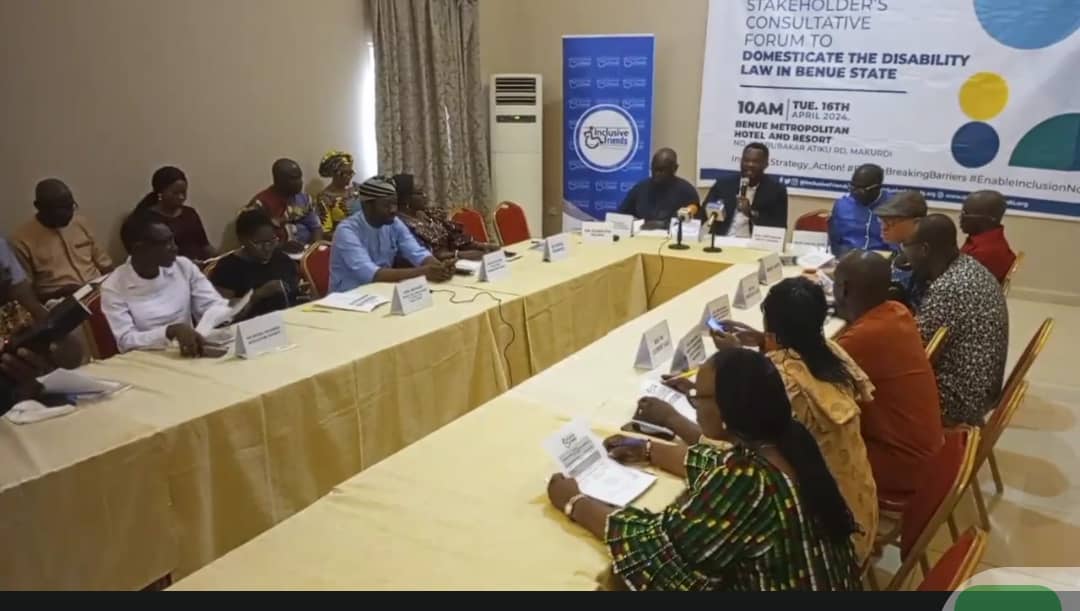
By David Torough, Abuja
Stakeholders have expressed concern over delay in the domestication of Disability Act in Benue state and called on government to expedite passage of the law in the state.
At the stakeholders’ consultative meeting to domesticate the disability law in the state held Tuesday in Makurdi in collaboration with Inclusive friends Association (IFA), Hope Alive for Possibilities Initiative (HAPI) and JONAPWD, the Director General, Bureau for International Cooperation and Development, Dr Leonard Viashima, represented by the Technical Adviser on Bureau for International Cooperation and Development, John Akuse, however said governor Alia’s administration was willing to domesticate the law in the state.
In his address, the Special Assistant to the Governor on Disability Affairs, Bem Anshe, who doubles as the chairman of JONAPWD, stressed the need for the domestication of the law in Benue, saying it would facilitate the inclusion of people with disability in governance.
Anshe decried the non-passage of the law in the state, lamenting that Benue was the only state in the North Central yet to domesticate it.
In her remarks, the Executive Director of IFA, Grace Jerry, represented by the Programme Manager of IFA, Stephen Idoko, noted that despite the challenges, she was confident that the forum would achieve its objective if all worked together.
She noted that the presence of stakeholders in the meeting reaffirmed the collective commitment to making a lasting impact on the lives of persons with disabilities in the state.
On her part, Prof. Christy Anyogo from IFA expressed hope that Benue would soon join the league of states that have domesticated the disability law, saying governor Hyacinth Alia never looks back on whatever he wants to do.
The consultative forum was attended by stakeholders from the state ministry of Women Affairs, ministry of Humanitarian Affairs, traditional rulers, religious leaders, social investment programme agency, Albinism association of Nigeria, leprosy survivors and spinal cord injury.
NEWS
Enugu Embarks on Inspection of Smart Schools, Healthcare Projects Across State
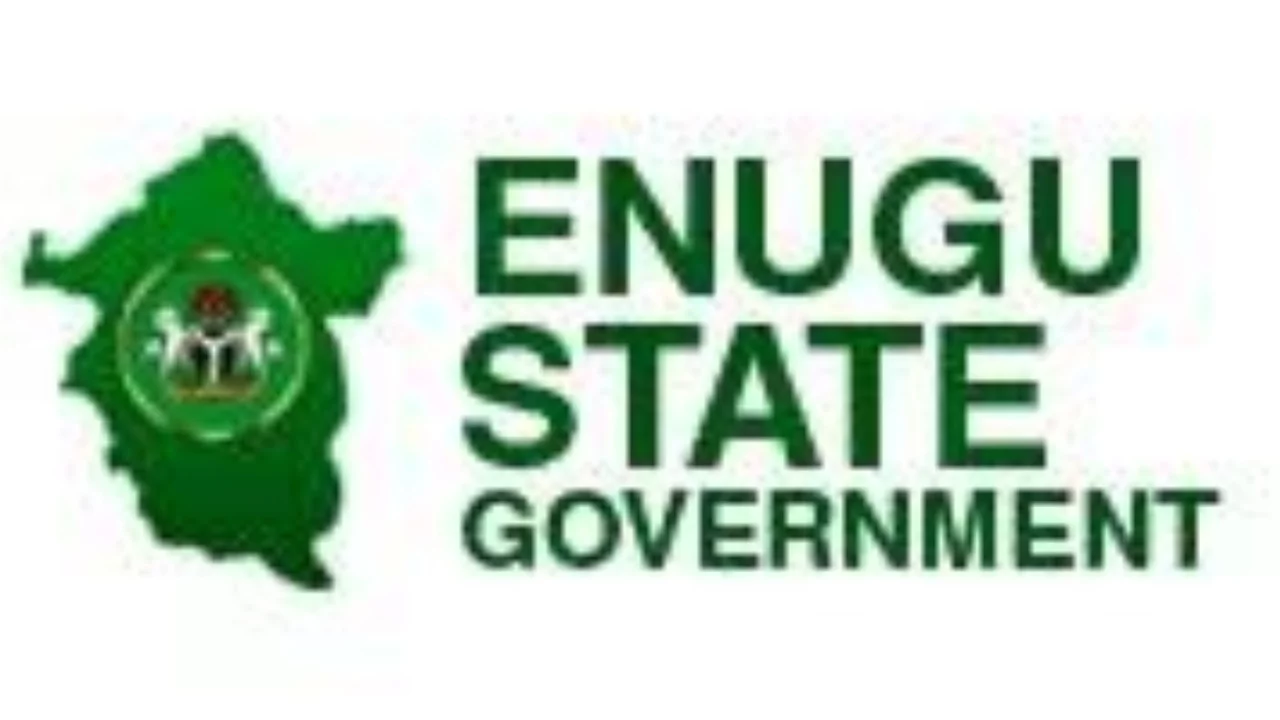
From Sylvia Udegbunam, Enugu
Governor of Enugu State, Peter Mbah has charged contractors and the site engineers handling construction of the 260 smart schools and 260 Type-2 Primary Health facilities in the 260 wards of the state on the delivery of world-class projects that would stand the test of time.
Governor Mbah enjoined them to deploy quality materials and build according to specifications, warning that any sharp practices would attract stiff sanctions and rejection by the government. He equally underscored the need for contractors to deliver their projects on schedule as stipulated in their terms of contract.The governor spoke through the Secretary to the State Government, Prof Chidiebere Onyia, during an inspection tour of ongoing projects in Ezeagu LGA on Wednesday.He said the purpose of the inspection by the project’s monitoring team, which also comprises the Commissioner for Works and Infrastructure, Engr Gerald Otiji; Commissioner for Education, Prof Nwabueze Mbah; Commissioner for Budget and Planning, Hon. Chris Robert Ozongwu; Chairman of the Enugu State Universal Basic Education Board (ENSUBEB), Dr. Gabriel Ajah; Special Adviser to the Governor on Projects Development and Implementation, Uche Nwatu, among others, was to ensure the quality and integrity of the projects, from start to finish.”We met with the contractors and their site engineers in all the sites we’ve visited. This is to ensure that there is no variation in the work specification, and that the quality of the materials they are using, starting from the foundation to completion, could guarantee the integrity and structural tests of these projects.”What His Excellency is setting out to achieve here is to make sure that we did not run the three risks that we know that are eminent in every construction, considering that a time will come in Enugu State when we will have almost five hundred live projects – smart schools, primary healthcare facilities – in all the 260 wards, in addition to the roads constructions that are going on across the board. So, we are building a very strong monitoring team that will address the quality aspect of it.”We are also taking into consideration the cost risk that comes when the time risk begins to happen, because, once we miss the timeline, the next is that we begin to discuss variation. So, this team here is to ensure that all risks are evaluated and compliance is strictly adhered to.”We are also working on engaging with the local stakeholders to ensure the security of the process here. So, that will help us address issues around theft of materials we brought to the site. But more importantly is that at the end of each project there will be sustainability and that these stakeholders will take ownership of these schools and other projects in their communities.”So, it is not just about monitoring, but also about building on all the key facets that will make sure that these projects achieve the objectives to have smart children and smart teachers coming out of our local governments and a smart workforce for the state,” Prof Onyia stated.That’s why we have accommodation for them and we are also going to ensure that Enugu generally has a smart workforce. That’s why we are here”.He allayed the fears over the culture of abandoned projects by various strata of the government, saying that the allocation of 33 per cent of the entire 2024 budget to education has guaranteed the start, completions, and handover of the smart school projects on schedule.On his part, Chairman of ENSUBEB, Dr. Ajah, said they were happy with the quality of work so far, adding that contractors were complying with specifications and corrections were immediately effected wherever there were gaps.Admonishing communities to take ownership of the projects, he urged them to see the facilities as their own by ensuring the security of the projects.”Security is everybody’s business. The people are happy. The government has never come to the people at ward level like this before now. So, I am calling on our people to protect these projects from vandals by taking charge and ownership of them”, he concluded.NEWS
Benue Govt Abandoned Foreign Exchange Programme Due to N3mn Bursary – DG BEQA

From Attah Ede, Makurdi
The Director-General, Benue State Education Quality Assurance Agency, BEQA, Dr. Terna Francis, on Thursday, said the administration of Rev. Fr. Hyacinth Alia is at the verge of reviving the state foreign exchange programme that was abandoned by previous administrations.
Dr. Terna, who said the foreign exchange program that had provided Benue citizens with opportunity to study abroad in the past, was abandoned due to the inability of the government to pay three million naira for those who secured foreign scholarships. The DG who disclosed while speaking with journalists in his office in Makurdi, said he had already sent a memo to the State government to reintroduce the program in order to add value to the educational system in the state.”We want to revive the foreign exchange program which was stopped because of just 3 million naira. I have already made a memo to the State government to reintroduce the program.We have some of these people who have benefited from this foreign exchange programme presently working with the state government. Some of them are in government house working while others are in other MDAs working and adding value to what we are doing”,Dr. Terna maintained. He however expressed dismay over the poor quality of education system in the State, saying there is a big mess in the quality of teaching and learning in schools across the State. “It was for this reason that the Governor Rev. Fr. Hyacinth Alia established this agency with the mandate to document, control and check the quality of learning in the basic and post basic education sector.”We met a mess in the education sector and we are now doing a clean up exercise . Several schools in the State have structural defects. People convert their two (2)bedroom flats into school.”The teachers are just secondary school leavers. Someone who just finished SS3 is giving a teaching job to teach SS3 physics.”Just imagine, a proprietor chokes students in a poultry farm. This is unacceptable and we are going to close the school down. Education is just for profiteering without quality.”We have been doing our best to clean up the mess. The agency is a bureau directly answerable to the Governor. Quality Assurance that means the department of Quality assurance in the Ministry of Education is directly under the agency.”It is a systemic thing. 32,000 is the fee for WAEC. But before now, the students were paying over 50,000 or more as WAEC fees.”We have called for recertification and gathering of data about quality of teachers and paying of annual renewal fees. We sent out our evaluators to confirm the data schools give to us.”I have visited over 300 schools in the State. We have warned school proprietors and proprietresses to put things in place or have their schools sealed. We are not compromising on standard and quality no matter who is involved. We are not backing down. We have the political backing.”It will amaze you to know that 2016 was the last time the examination board conducted BECE without issuing certificates.”You can imagine that a school in Makurdi is using the British curriculum and operating a semester kind of education. The students are made to pay 550,000 as fees.”We have tried to reduce bureaucracy in the establishment of schools before now, which takes up to a year, but now, it takes just a few months to get a provisional approval to establish a school.






